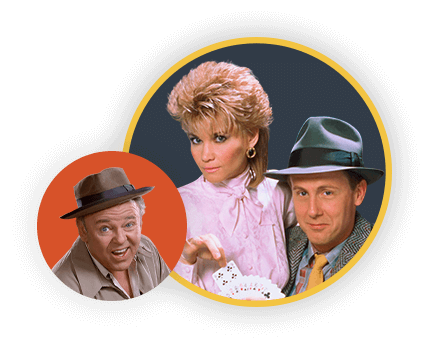10 vintage pinball machines that were inspired by classic TV shows

Hollywood may be the center of the television universe, but Chicago is the global hub of pinball. Coin-op arcade machine manufacturers such as Gottlieb, Bally and the aptly named Chicago Coin were all based in the Midwestern metropolis.
Between 1960 and 1980, the peak pinball era and the golden age of color television, those two worlds would often unite. There were many pinball machines made that tied into popular TV series. Some were admittedly rather loose adaptations.
Let's take a look at some of our favorite pinball cabinets inspired by classic TV. No quarters required.

Wagon Train
1960, D. Gottlieb & Company
The hit Western gave its name to this early machine, which came decorated in a cowboys-and-Indians theme typical of toys from that era. A small figure driving the wagon backglass appeared to be Charlie (Frank McGrath) while a mustachioed man on the playfield resembled Ward Bond. Bond would pass away months after this was released.
Image: Gottlieb / Internet Pinball Database

Bonanza
1964, D. Gottlieb & Company
The Bonanza game seemingly had little to do with the Ponderosa beyond name. A quintet of cowgirls was prominently featured on the backglass — although if you look closely, the Cartwrights can be seen in the lower right, excitedly hopping a fence.
Image: Gottlieb / Internet Pinball Database

Star Trek
1971, D. Gottlieb & Company
1979, Bally
The Original Series inspired two "official" pinball machines. The first, released in 1971, had nothing to do with Kirk and Spock beyond the title. A more retro 1950s sci-fi design appeared on the backglass, featuring a woman in a space helmet and a rather Robby-esque robot. There was at least a green-skinned female alien? Bally's 1979 machine at least showcased the beloved Enterprise crew, albeit in baby-blue uniforms clearly promoting Star Trek: The Motion Picture, released that same year. Oddly, the machine that best captured the classic Star Trek look was the off-brand Star Ship machine from 1976. A spacecraft that was clearly the Enterprise flew across the backglass.
Images: Bally / Bally / Gottlieb / Internet Pinball Database

Time Tunnel
1971, Bally
The Irwin Allen time travel adventure inspired this groovy machine. Mod women swirled around a hypnotic portal on the backglass. It may have hit arcades in 1971, but the look was pure Sixties.
Image: Bally / Internet Pinball Database / Brian Saunders

Hee Haw
1973, Chicago Coin Machine Manufacturing Company
What "Rural Purge"? Networks famously shifted away from television shows set in the countryside at the start of the 1970s, but not all folksy TV disappeared. The cornpone humor of Hee Haw made it one of the most popular variety shows at all time. It was peaking in popularity when this machine two-stepped into arcades with its hoedown motif.

The Fonz Pinball
1977, Coleco
Fonzie had a magic touch with the pinball machines in Arnold's. At last, here was a sitcom that prominently featured a pinball machine in its episodes. Naturally, there must have been an arcade game based on the show? Well, not really. The Fonz Pinball was a lightweight, smaller game made for homes by Coleco, the video game company.

Rawhide
1977, Stern Electronics
Movin', movin', movin', keep those pinballs movin'… Rawhide! The Western series had been off the air for a dozen years when this machine was released, but erstwhile star Clint Eastwood was a major movie star, so why not get nostalgic?

Charlie's Angels
1978, D. Gottlieb & Company
Sorry, Farrah. You leave the show, you miss out on being a pinball illustration. Cheryl Ladd is represented on this Angels game, which might have the most realistic representation of a show's characters.

The Six Million Dollar Man
1978, Bally
Okay, so what we just said about that Charlie's Angels artwork looking like the actors? Case in point here. The Steve Austin on this backglass more closely resembled Evel Knievel than Lee Majors.

Buck Rogers
1980, D. Gottlieb & Company
The Buck Rogers character dated back decades, but this game was emulating the hit television series, right down to its logo. Sadly, the woman on the backglass did not look anything like Erin Gray, and was more of a stock bikini model. Come to think of it, did that outfit inspire the infamous Princess Leia getup in Return of the Jedi?




